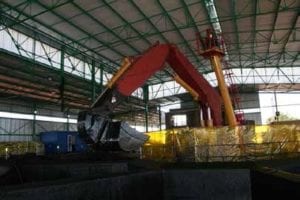Historically, in South Africa, waste treatment technologies have focused principally on reducing the risks associated with the disposal of both general and hazardous waste at landfill sites and as a result of this there are very few viable alternative waste management options available for the bulk of waste streams produced locally.
With the promulgation of the new waste classification and management regulations on 23 August 2013, certain waste disposal restrictions and prohibitions came into effect relating to the disposal of waste to landfill. Examples are the landfill of hazardous wastes containing low levels of an array of organic compounds or of waste with a calorific value of greater than 25MJ/kg that will be banned from landfill by 23 August 2017. In effect, this prohibits the disposal of many hydrocarbon-based materials to local landfill sites and creates a niche for the development of alternative solutions for the management of these waste streams.Cement kilns in Europe are moving towards the replacement of fossil fuels with hydrocarbon-based waste derived fuels (WDF’s).
The technology to substitute coal with a WDF in cement kiln operation is well developed internationally but requires a consistent and controlled WDF supply in order to implement effectively. This implies the need for co-operation between major industrial, waste management and cement industry stakeholders. Download technical paper here.




